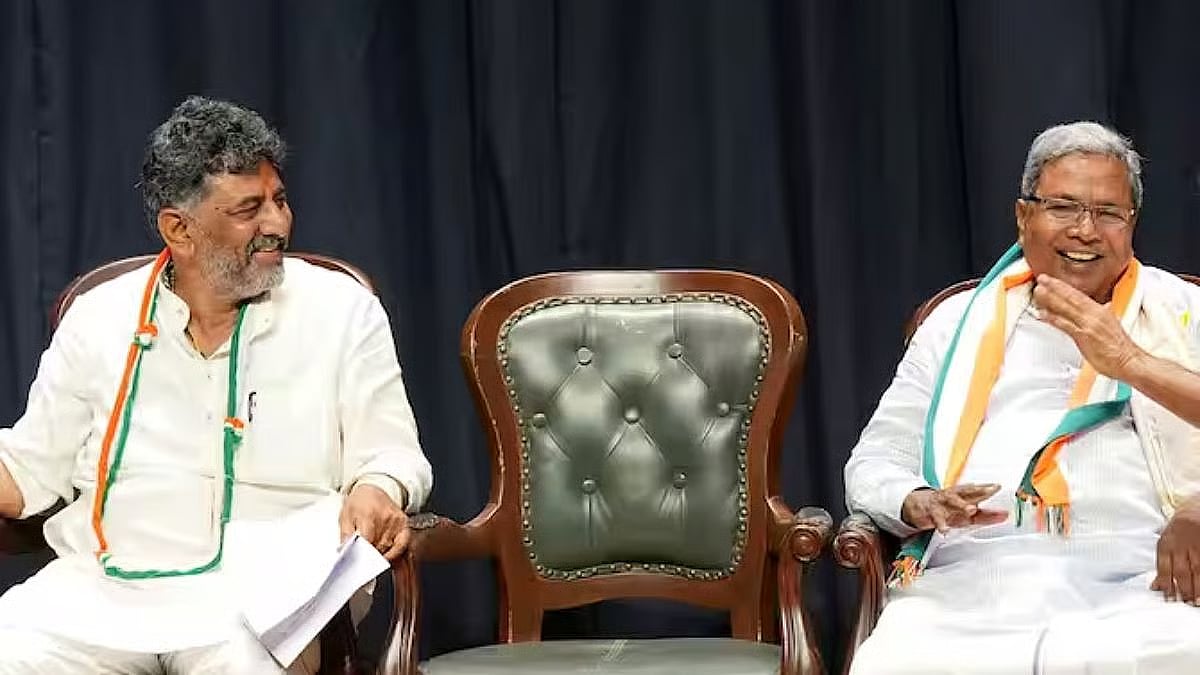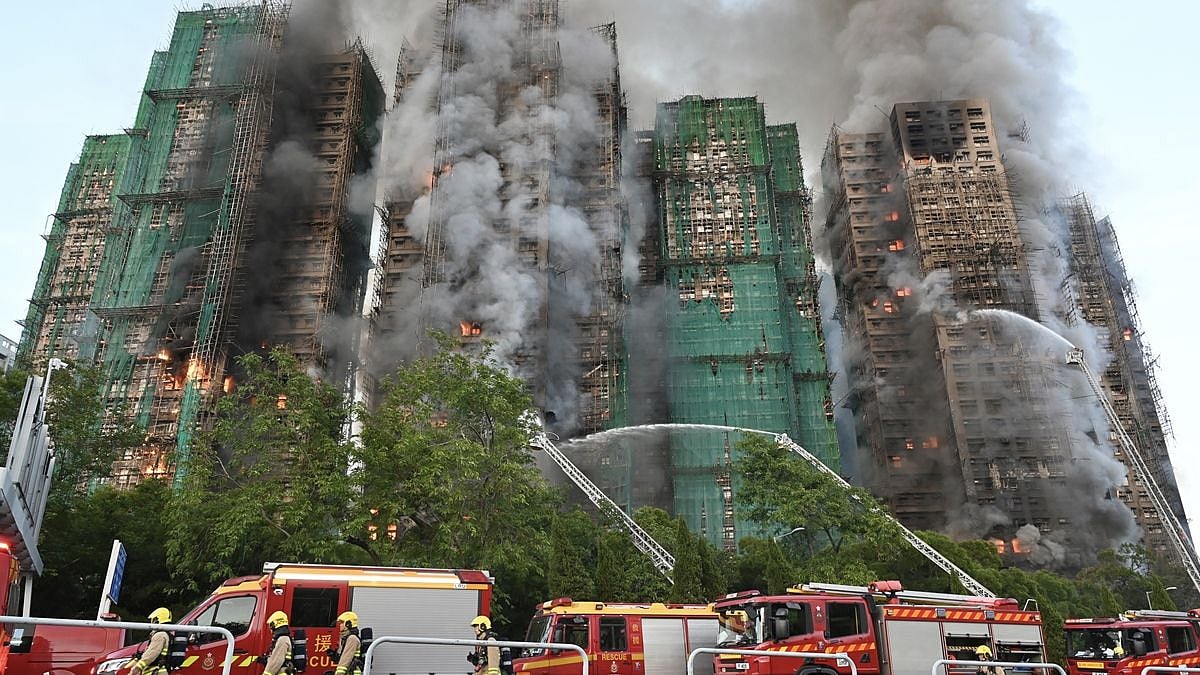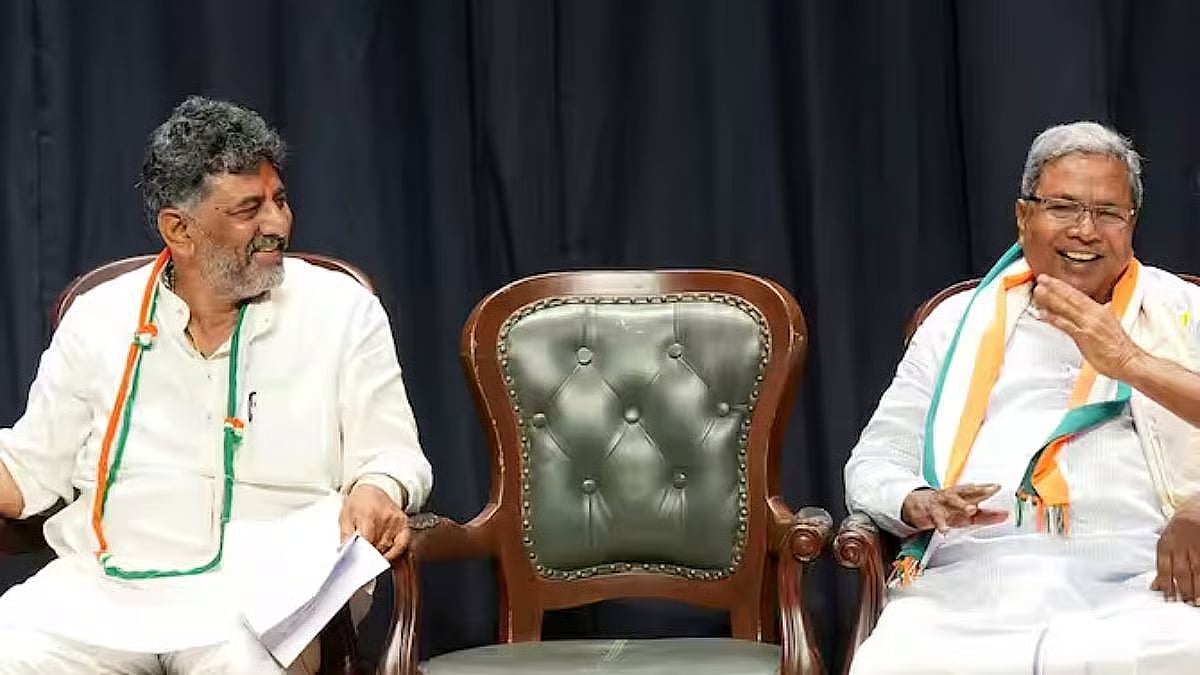“High command will decide”, the anodyne statement with which all forms of intra-party dissent in the Congress are met, has failed to stem the factional feud that threatens to destabilise the party in Karnataka. Making his power play on the heels of the party’s decimation in Bihar, feisty would-be chief minister DK Shivkumar clearly sees himself as negotiating from a position of strength.
Successive shock electoral defeats in Bihar, Delhi, Maharashtra and Haryana—not to mention an embarrassing performance in Jammu & Kashmir—have eroded the high command’s moral authority to mediate between warring factions in the party. Allegations of rent-seeking behaviour by top party leaders in Bihar haven’t helped matters.
The absence of a de-centralised dispute-resolution system in the Congress has ensured that the high command is no longer an effective arbitrator. Shivkumar has publicly given credence to reports of a deal for rotational chief ministership, whereby current incumbent Siddaramaiah was to yield office to him after two and a half years. One report states the Karnataka CM had explicitly promised to hand over the post a week before the deadline of November 20, 2025.
Factions are inevitable in a big tent party, which accommodates differing opinions, interest groups and aspirations. Time was when troubleshooters like Ahmed Patel, Ghulam Nabi Azad, and Pranab Mukherjee would wade in and bring rival factions to the table, thrash out a compromise and get them to work towards a common goal. The party’s landslide win in Karnataka in 2023 was a result of the chronic rivals, Siddaramaiah and Shivkumar, burying the hatchet and working together to pool votes rather than focus on their respective strongholds. Voters responded enthusiastically to the viral video of the “heart-to-heart” between the two, ending with the message “We are stronger together”.
Both wanted to be CM, with Shivkumar claiming that he had “delivered Karnataka to the fold”. He declared that the decision on leadership would be taken in the “temple” that was the party headquarters in Delhi. By all accounts, it wasn’t so much the “temple” as the “secret deal” that allowed Siddaramaiah, who claimed it had been his last election, to become CM.
Fully aware of the said deal, the high command is in a quandary, as both leaders command a strong vote base. Siddaramaiah is the tallest OBC leader, while Shivkumar has considerable traction among the Vokkaligas. Arguably, his efforts enabled the Congress to win 38 of 56 seats in Vokkaliga-dominated Old Mysuru. One option would be to let the MLAs decide in a secret ballot, but that would inevitably lead to horse-trading.
The weaker the Congress gets, the harder it is to manage factionalism in a way that strengthens the party, as was the case in Karnataka. The old system, whereby troubleshooters at the state and district level resolved disputes before they became public knowledge, no longer functions. The high command, meanwhile, tends to be apathetic vis-a-vis the grievances not just of the rank and file but MLAs and MPs as well. The failure of the high command to coordinate with provincial leaders leads to a disunited leadership. Grassroots leaders who feel their concerns are ignored either quit the party or undermine their rivals. Often, the party fares poorly in seats where such leaders have clout.
In recent years, rivalry between leaders has impacted the Congress electorally. The conciliation between Ashok Gehlot and Sachin Pilot in Rajasthan and Bhupesh Baghel and TS Singh Deo in Chhattisgarh proved to be temporary fixes, and the BJP came roaring back in both states. In Himachal Pradesh, where Sukhvinder Singh Sukhu beat Pratibha Singh and Mukesh Agnihotri to the top job, the internal feud led to cross-voting by six Congress MLAs in the Rajya Sabha elections last year. As a result, the BJP candidate won despite the Congress having a majority.
Dynasty has arguably played a significant role in provoking rebellion. Congress MP Shashi Tharoor famously pointed out that dynastic politics is bad for democracy. Nothing attests to the dilution of the democratic ethos of the Congress more than party president Mallikarjun Kharge’s “High Command will decide” statement. Over-centralisation, arbitrary appointments and the emergence of a cabal that insulates the dynast from on-ground feedback have led to factionalism, which has weakened the party and eroded its electoral competitiveness. The dynast is not held accountable or subject to a performance review, but a perceived loss of popular support and poor electoral outcomes bring dissenting voices out into the open.
In Bihar, rebellion spilt out onto the streets before the elections. Congress workers confronted state in-charge Krishna Allavaru at Patna airport and levelled allegations of corruption in ticket distribution. In the wake of the electoral debacle, Rahul Gandhi’s close advisor, KC Venugopal, has become a target of party leaders and workers. While the brickbats are aimed at him, the fact is that both he and Allavaru are the high command’s trusted aides. He is known to use his clout in favour of certain factions in various states, to the annoyance of their rivals.
Broad-based decision-making, a robust second-tier leadership and a democratic approach will serve the Congress better than a concentration of power. Overbearing weight at the top can make any structure fall.
Bhavdeep Kang is a senior journalist with 35 years of experience working with major newspapers and magazines. She is now an independent writer and author.









